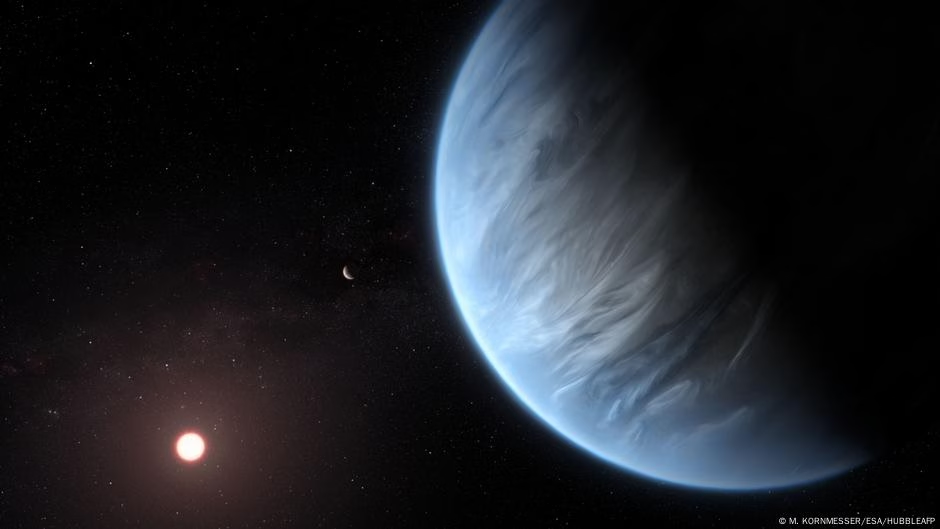A group of scientists announced on Wednesday that they have discovered the most compelling evidence yet of potential life on a large planet outside our solar system.
Nikku Madhusudhan, an astrophysicist at Cambridge University, stated that their findings indicate signs of possible biological activity beyond our solar system. He emphasized that these results are the “first hints we are seeing of an alien world that is possibly inhabited.”
The researchers, however, cautioned against concluding that they have discovered actual living organisms. They emphasized that more observations are needed to determine the exact nature of their findings.
The study, published in the Astrophysical Journal Letters, revealed the presence of a possible biosignature, an indicator of a biological process, on a planet known as K2-18b. This planet orbits a star located 120 light-years away from Earth.
K2-18b is described as a massive planet, with a mass approximately 8.6 times greater than that of Earth and a diameter 2.6 times larger. Previous studies have suggested that K2-18b may be a Hycean exoplanet, meaning it could have a hydrogen-rich atmosphere and a surface covered in water oceans.
While the discovery of signs of microbial life on K2-18b is intriguing, some scientists stress the need for caution and thorough examination of the data. Christopher Glein, the principal scientist at the Space Science Division of the Southwest Research Institute in Texas, referred to K2-18b as a “tantalizing world” but highlights the importance of rigorously testing the data.
Sara Seager, a professor of planetary science at MIT, also advises patience, recalling an instance when earlier claims of water vapor in K2-18b’s atmosphere turned out to be a misidentification of another gas.
Edited by: Roshni Majumdar
Source: https://www.dw.com/en/strongest-sign-yet-of-possible-life-beyond-earth-study/a-72269274?maca=en-rss-en-all-1573-rdf






